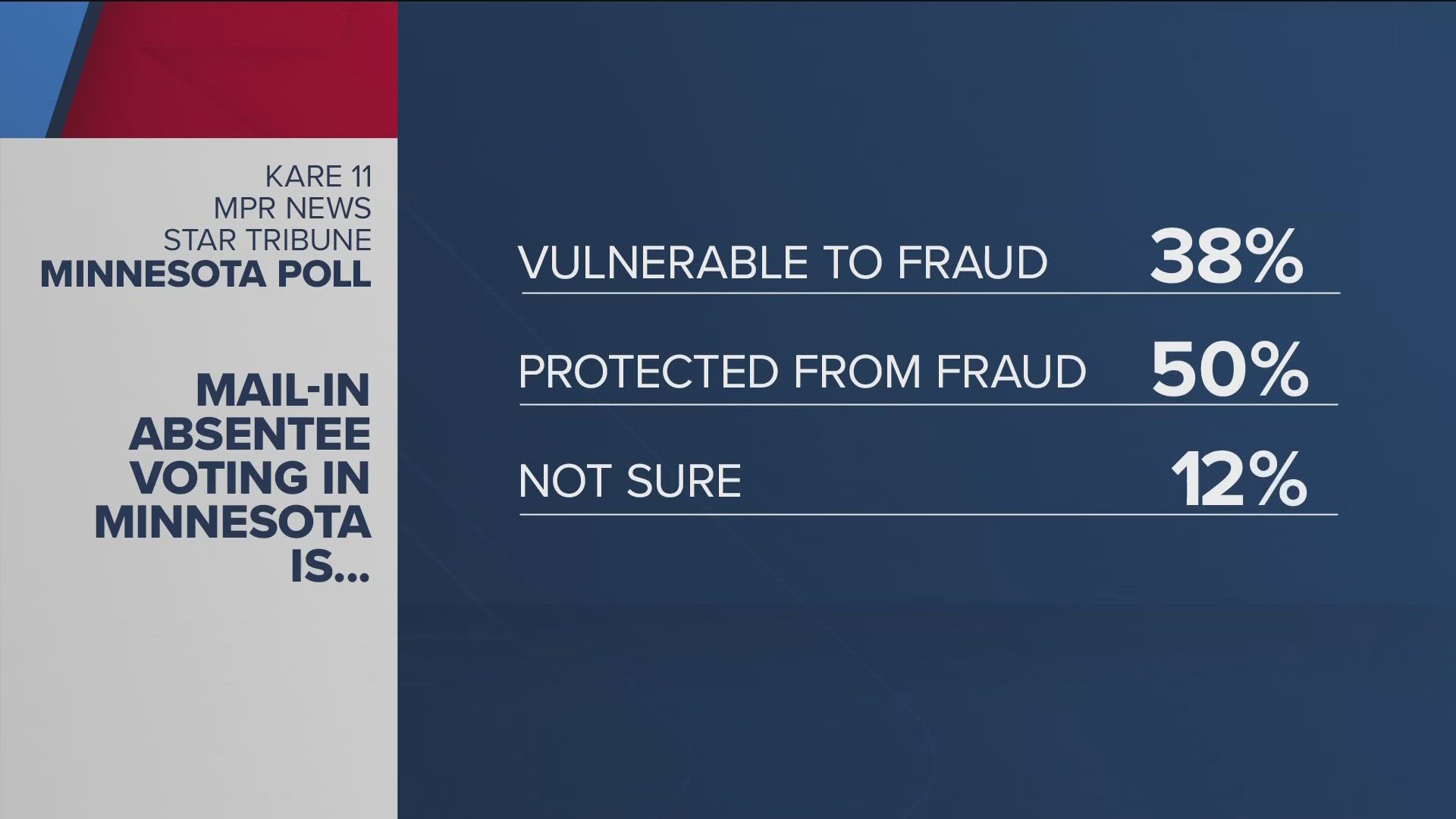ST PAUL, Minn. — A new KARE 11-MPR News-Minnesota Star Tribune Minnesota Poll finds likely voters in the state leaning toward Vice President Kamala Harris over former President Donald Trump in the presidential race, and with mixed opinions about Minnesota governor and vice presidential candidate Tim Walz. However, the poll also sought voters' opinions about the election itself, namely confidence in the state's election system and the vote count for the upcoming presidential race.
PRESIDENTIAL RACE CONFIDENCE
Fifty percent of voters surveyed in the Minnesota Poll said they have "high confidence" that the votes in the 2024 presidential election will be counted accurately; 29% expressed "moderate confidence" in the vote count, 9% said they had "low confidence," and 12% said they had "no confidence" that the vote will be counted accurately.

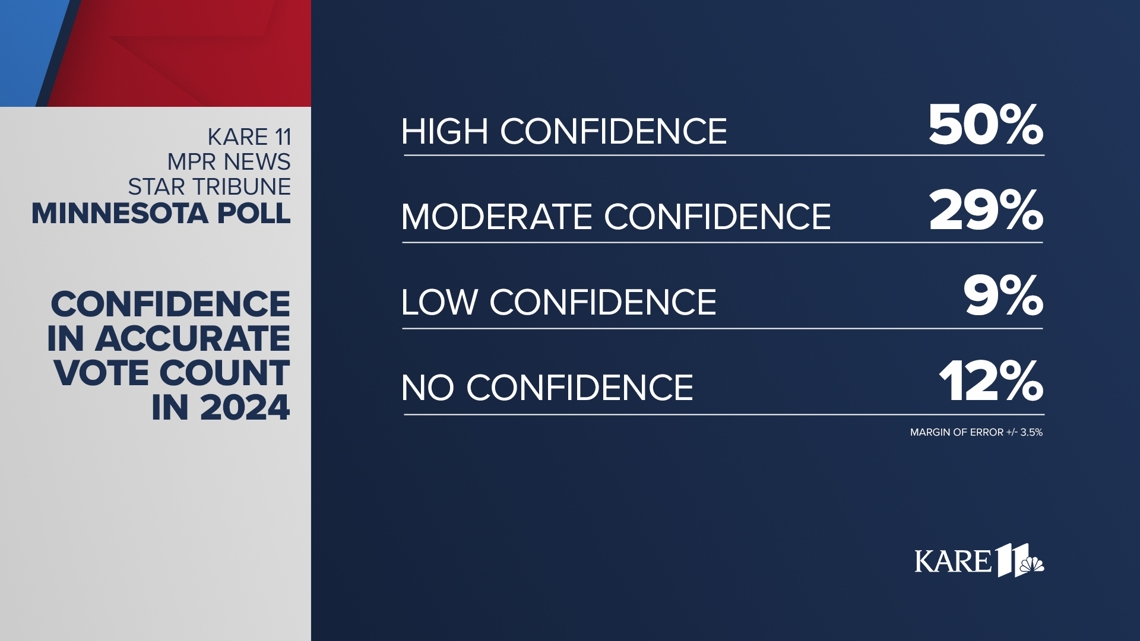
Democrats overwhelmingly expressed "high confidence" in the vote (85%), with 14% saying they had "moderate confidence," and just one percent saying they have "no confidence." By contrast, 17% of Republicans said they had "high confidence," 43% said they had "moderate confidence," 16% said "little confidence," and 24% said they had "no confidence" in the presidential vote count. Independents, meanwhile, were divided with 41% reporting "high confidence," 32% reporting "moderate confidence," 13% saying "little confidence," and 14% reporting "no confidence."
MINNESOTA VOTING
More Minnesota voters plan to cast their ballots in person this Election Day compared to four years ago, when the COVID-19 pandemic led many to take advantage of temporary changes to absentee voting policies.

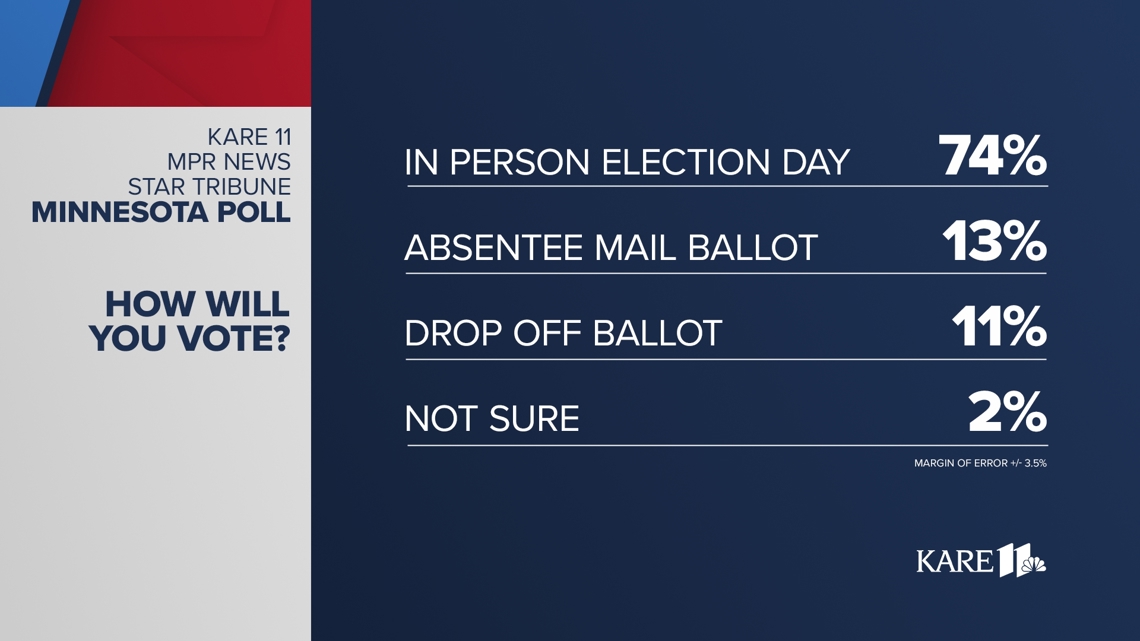
The KARE 11-MPR News-Minnesota Star Tribune Minnesota Poll found 74% of respondents plan to vote in person on Election Day 2024, up by 13% from 2020. Meanwhile, 13% said they plan to vote absentee in 2024, down from 26% in 2020. The number of voters who plan to drop off a ballot before Election Day was nearly identical (11% in 2024, 12% in 2020).

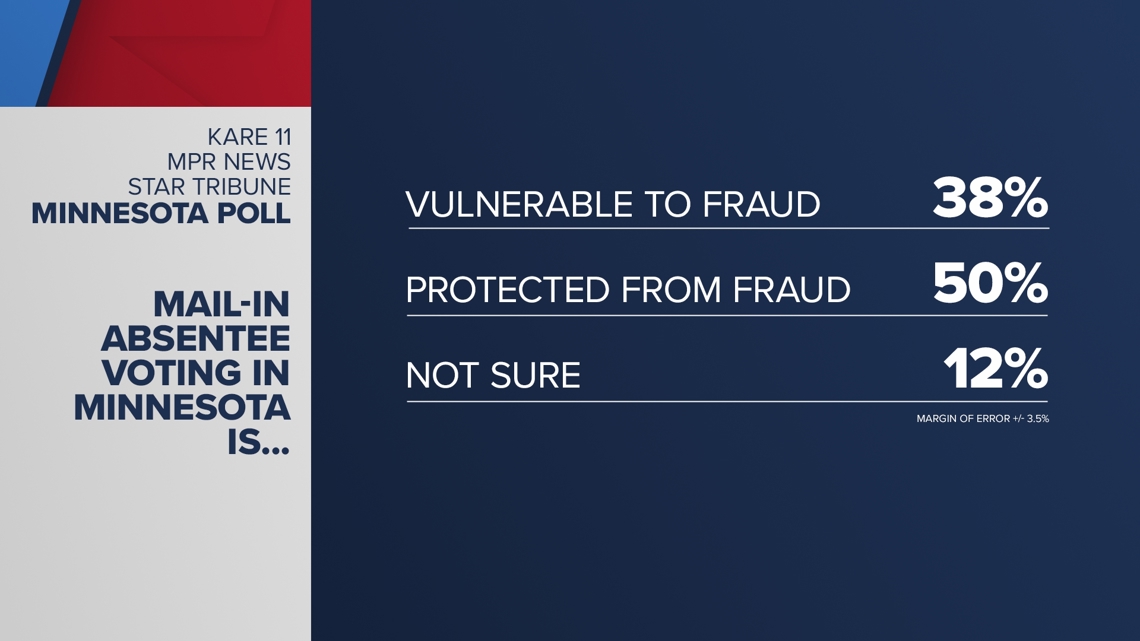
Half of Minnesota voters continue to have confidence in Minnesota's absentee voting system. Fifty percent of those polled said they believe absentee voting has adequate protections against significant levels of fraud, which was identical to the response four years ago. The number of voters who said they believe the absentee voting system is vulnerable to fraud declined slightly this year, at 38% of those surveyed, compared to 41% in 2020.
LEGAL CANNABIS
The Minnesota Poll also sought voters' opinions on legalizing recreational cannabis use nationwide (recreational cannabis has been legal at the state level in Minnesota since 2023).

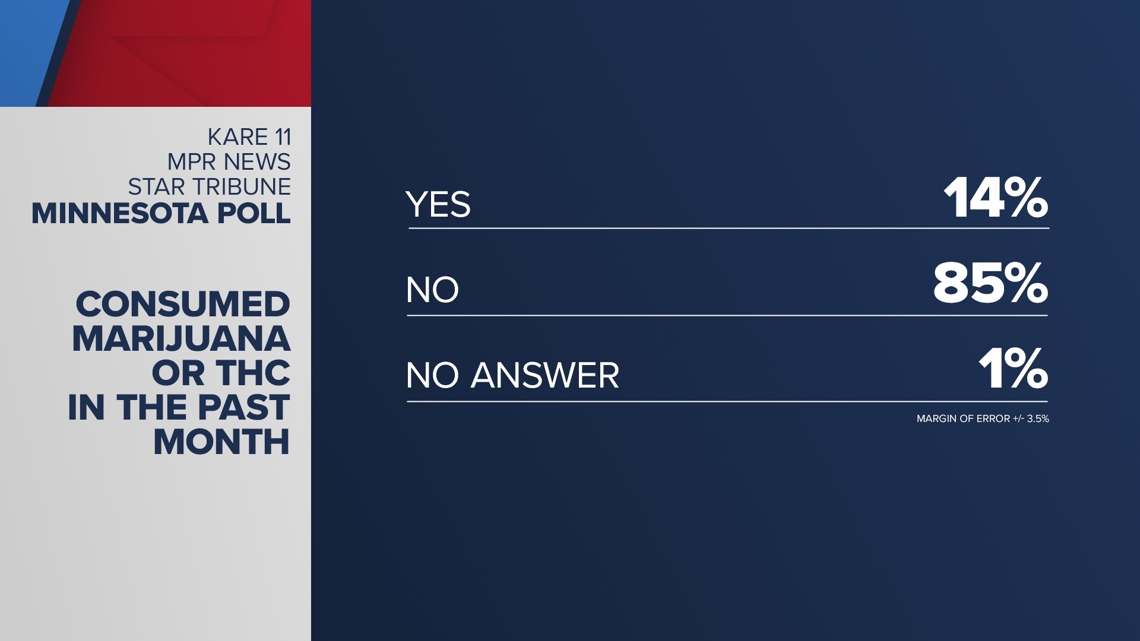
The poll found 14% of those surveyed said they've used cannabis or hemp-derived THC products in the past month, while 85% said they have not.
However, while most have not used cannabis, a majority of voters support legalizing recreational cannabis nationwide, with 61% saying they support legalization, 34% opposed, and 5% saying they're not sure. Legal cannabis received more than 50% support across all gender, age, education, and racial demographic breakdowns within the poll. Only Republican voters had a majority in opposition (57%) than in support (38%).

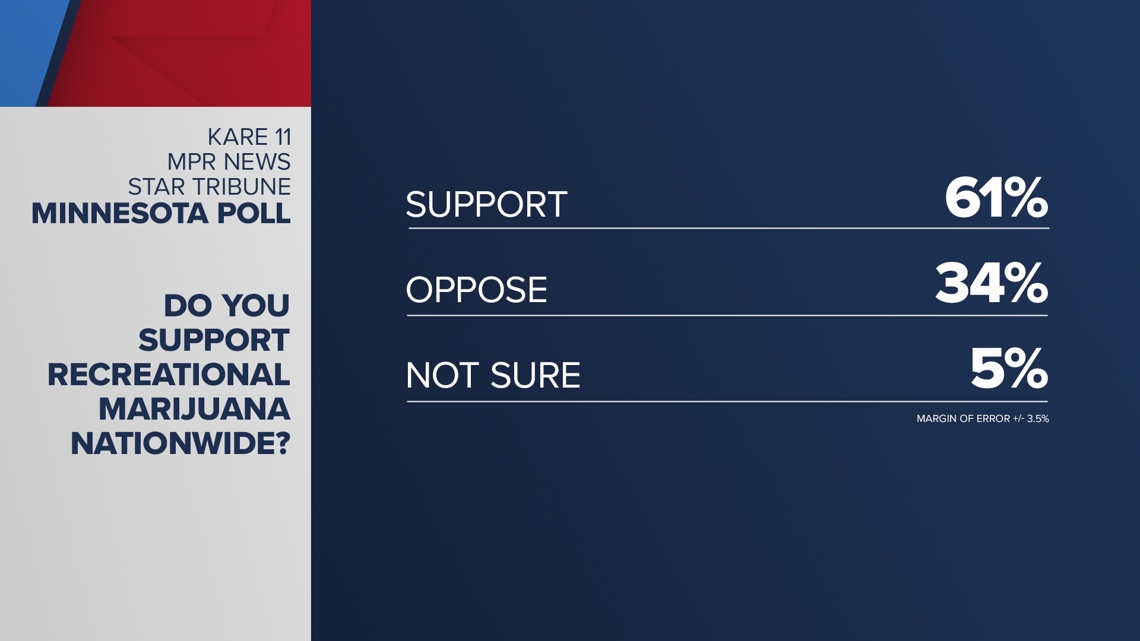
METHODOLOGY
This poll was conducted by Mason-Dixon Polling & Strategy of Jacksonville, Florida from September 16 through September 18, 2024. A total of 800 registered voters in Minnesota were interviewed statewide by telephone. All indicated they were likely to vote in the 2024 presidential election.
Those interviewed were selected randomly from a telephone-matched Minnesota voter registration list that included both landline and cell phone numbers. Quotas were assigned to reflect voter turnout by county.
The margin for error, according to standards customarily used by statisticians, is no more than ± 3.5 percentage points. This means that there is a 95 percent probability that the "true" figure would fall within that range if all voters were surveyed. The margin for error is higher for any subgroup, such as a gender or age grouping.

